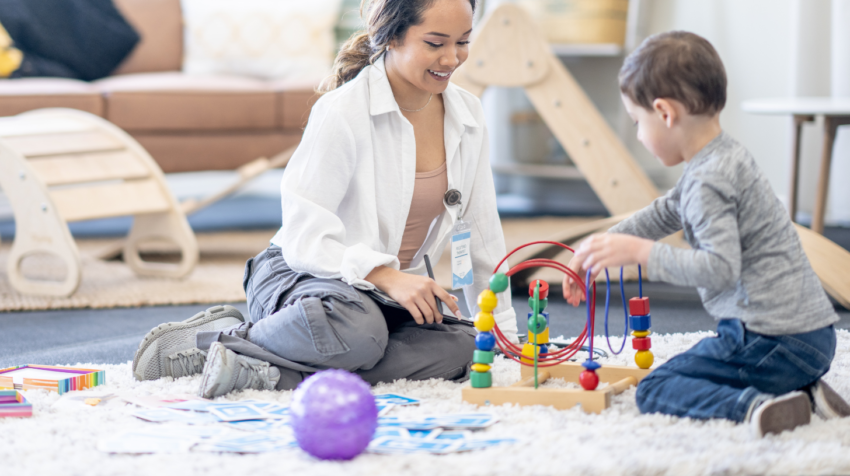
When we think of occupations, our minds often leap to professions or jobs that adults undertake. However, in the world of pediatric healthcare, an occupation can be as simple as dressing oneself, participating in school, or even playing with peers. Occupational therapy (OT) for children isn’t about preparing them for a job, but rather, enabling them to partake in these daily “occupations” efficiently and confidently. Let’s delve into the transformative role of OT in children’s lives.
What is Pediatric Occupational Therapy?
At its core, best pediatric occupational therapy focuses on aiding children in acquiring the essential skills they need for the ‘job’ of being a kid. This can range from basic self-care routines, like brushing teeth and getting dressed, to more complex skills required in school settings or social environments.
Benefits of Occupational Therapy for Children
- Improving Fine Motor Skills: One of the primary domains addressed by OT is fine motor skills. This includes actions like holding a pencil, buttoning a shirt, or using scissors. Through various exercises and activities, therapists assist kids in refining these essential skills, setting a foundation for academic and self-care success.
- Boosting Gross Motor Skills: Whether it’s jumping, running, or coordinating movements on a playground, OT can help kids hone their gross motor abilities. This not only aids in physical development but also ensures children can partake in play and physical education with their peers.
- Enhancing Sensory Processing: Some children can be hypersensitive (over-responsive) or hyposensitive (under-responsive) to sensory inputs. An occupational therapist, through sensory integration therapy, can help children regulate their sensory responses, ensuring they interact with their environment in a balanced and comfortable manner.
- Promoting Independence in Daily Activities: A significant goal of OT is fostering independence. By mastering self-help skills such as feeding, dressing, and grooming, children can experience increased self-esteem and a sense of accomplishment.
- Improving Cognitive Skills: Occupational therapists provide strategies and tools to bolster cognitive abilities. This might involve memory games, sequencing tasks, or problem-solving challenges that prepare kids for academic tasks and everyday problem-solving.
- Enhancing Play Skills: Play is a child’s primary occupation. Beyond mere entertainment, play is vital for social understanding, cognitive development, and motor skills. OT can guide children in playing constructively, understanding rules, and engaging in group play.
- Social and Behavioral Skills: Occupational therapy can also aid children in navigating social interactions. This includes understanding social cues, waiting their turn, or managing frustration. For children with behavioral challenges or conditions like ADHD, tailored OT interventions can be immensely beneficial.
Who Can Benefit from Occupational Therapy?
While OT can be beneficial for any child seeking to refine specific skills, it’s particularly transformative for children with:
- Developmental delays
- Learning difficulties
- Autism Spectrum Disorders
- Physical disabilities
- Sensory processing disorders
Pediatric occupational therapy stands out as a beacon of holistic child development. By addressing the full spectrum of a child’s daily activities and challenges, OT ensures children are not just surviving, but thriving in their environments. As they master each skill, they inch closer to becoming independent, confident individuals, ready to embrace the world with open arms. Whether you’re a parent, educator, or healthcare professional, understanding and championing the benefits of OT can pave the way for brighter futures for many children.